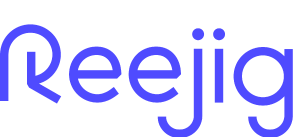Building a Skills-First Organization: The Path to Zero Wasted Potential
How can you get the best from your existing workforce, how can you nurture them, and create fairer, more equitable talent practices?
Evidence uncovered by Lighthouse Research & Advisory shows that workers crave development opportunities, but employers aren’t always certain how to make them available, accessible, and equitable.
Watch now for practical and actionable tactics to adopt a skills-based, AI-driven approach to your talent strategy, in turn, leading to a more effective and capable workforce.



Understanding how to utilize an existing workforce is one of the biggest hurdles for current businesses. After all, it’s important for leaders to fully recognize how to nurture employees, while also harboring a fair and equitable environment.
In a 60-minute webinar, exclusive to UNLEASH, Siobhan Savage, CEO and Co-Founder of Reejig and Kay Smart, Global Head of Talent Acquisition of Reckitt discuss the following:
- Focusing on skills: How to adopt a realistic path for a skills-first approach.
- Creating impact: Understanding how businesses can make an impact each step of the way.
- Overcoming challenges: How can the biggest blockers to businesses be anticipated and solved in a skills-first transformation?
- Prioritizing change: How to focus on appropriate approaches to implementation and change management to realize the powerful ROI in every HR function.
The path to becoming skills first
Every organization is on its unique journey to becoming skills first. To highlight this, while also understanding the progress that needs to be made, UNLEASH asked the audience to share their experience at their current business through a poll during the live webinar.
Almost half (48%) of the audience stated that they have done episodic work on their business’ job architecture and skills ontology, yet the skills aren’t quite baked into the organization’s processes.
This highlights that for many businesses, becoming skills first is a priority. But it also suggests that there are several roadblocks present as they try to achieve this.
“We’re all at different moments of our journey,” Smart says. “We [Reckitt] are definitely not sitting here as an organization saying ‘we’re skills first’, but I feel like we’ve dived into some aspects and have seen amazing progress. That being said, there are also parts that we are absolutely still learning on.”
“What we’re finding is we didn’t want ‘perfect’ to stand in the way of ‘progress’ and actually moving some of these parts forward as we learn is helping us to inform our strategy for the future,” she adds.
Similarly, Savage explains why businesses need to prioritize skills now, which she believes brings us to the concept of what zero wasted potential is, asking the question: “How do we, at a first principal level, mobilize workers to work?
“The way I think we’re getting it wrong in the market now, is by looking at it from a marketing perspective. But if we put our workforce strategy and HR hats on together and look at how we could be more efficient at mobilizing work to workers, we would start at a fundamental level of understanding what we require, while also tackling it from a people’s perspective.”
She continues to state that, as CEO of one of the fastest-growing technology companies in HR, she’s a perfect example of why skills are so important. “No one would ever give me this job,” she explains, “but if you look at the skills I have accumulated in my backpack since, say, graduating school, through all the different positions I’ve held – I’m actually using them today. When we start to think like that, it broadens access to opportunity.”
As the conversation progresses, the pair discuss various other topics, before tackling what they believe to be the biggest drivers to becoming skills-first, while considering mobilizing talent, improving visibility to career paths, planning for future workforce needs, and creating more equitable opportunities for all.
Concluding, Savage says: “Time is everything. It’s the one thing we can’t get back. If we can speed employees up so they get to do the most meaningful aspects of their work, it becomes a massive advantage for all teams. But also, I think it’s important to get comfortable with being uncomfortable. Every challenge is an opportunity for growth. That’s the way you’ve got to think about it in this space.”
UNLEASH is recognized by SHRM to offer Professional Development Credits (PDC) for SHRM-CP or SHRM-SCP recertification.
